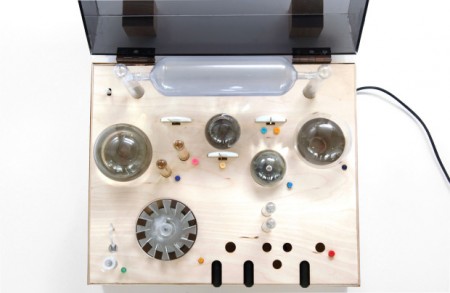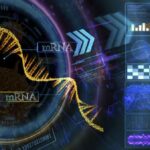November 13, 2015 – When I was young my parents bought me a chemistry set. I had a telescope, microscope and more than a dozen aquariums of different sizes throughout our house. Yes indeed, I was a nerd. And now parents of nerds like me can buy the 21st century equivalent to that chemistry set I had. It is called Amino and for $700 U.S. gives your aspiring scientist son or daughter a bioengineering tool that allows them to culture and genetically engineer bacteria. One project involves changing E. coli to make it glow.
In a recent Indiegogo crowdfunding exercise, the inventors of Amino raised over $30,000 US, 229% above their target request. Described as a counter-top sized bio-lab, the kit comes with projects to grow living cells, create fragrances, flavors, new medicines and more. It is, in effect, the equivalent of a professional biological laboratory made simple. It describes itself as “a small and simple-to-use hardware system that enables anyone to grow and take care of living cells….the world’s first publicly available bioengineering platform that can be used at home, in labs or in schools.”
The creators description likens DNA to software and living cells to mini DNA factories with Amino providing the means for cells to be cultured outside their normal environments using the medium and tools within the kit. You get a bacterial culture, pipettes, incubator, agar plates and sensors built into a color-coded dashboard. Amino is genetic engineering and synthetic biology “accessible to everyone.”
The first Amino One kits come in two flavors. Amino Glow and Amino Explorer. Amino Glow turns E. coli into a living night light. Amino Explorer allows users to work with DNA to optimize violacein production, an anti-cancer, anti-parasitic research compound. Both kits come with automated cleaning systems so your cultures can’t accidentally get loose in your home or school.
Future planned Amino Apps will be priced between $150 and $400 depending on the DNA program and components. Food refills are also available to keep your cell cultures growing and in the case of E. coli, glowing.









